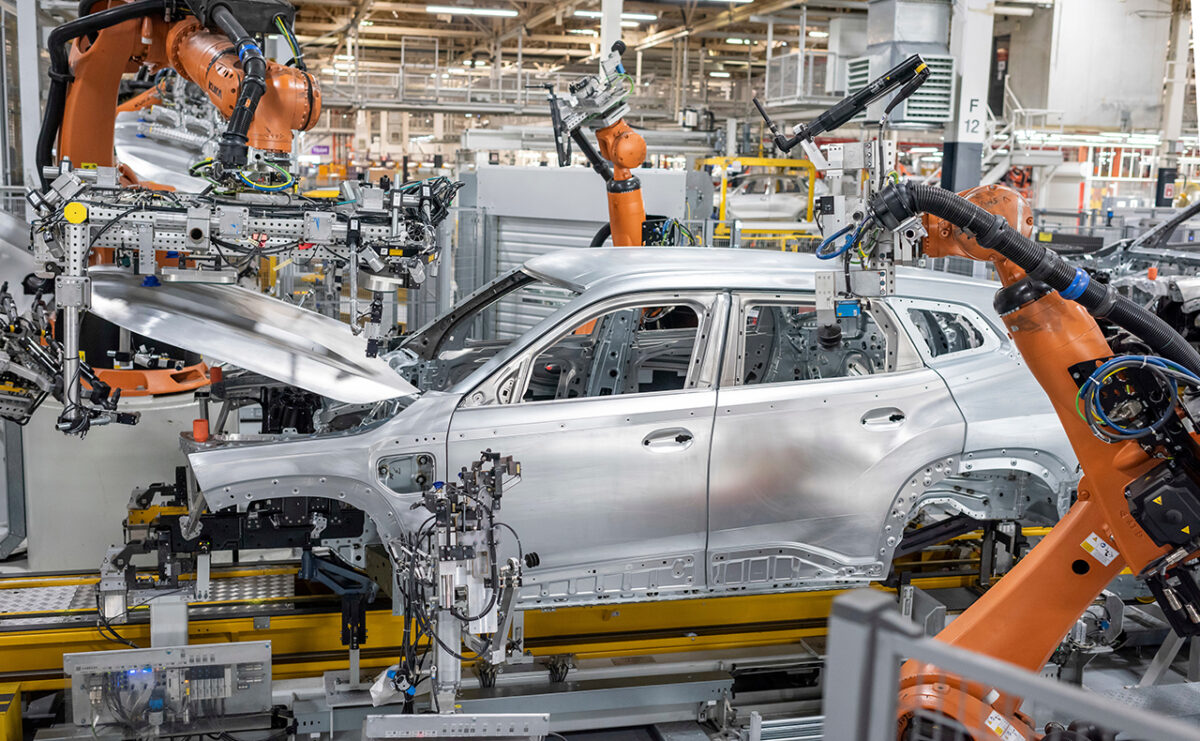
Automotive manufacturing has always been at the forefront of industrial innovation. From the introduction of the assembly line by Henry Ford to the adoption of robotics in the 20th century, the industry has continually evolved. Today, it stands on the cusp of another transformation driven by the principles of Industry 4.0. This term refers to the integration of advanced technologies such as the Internet of Things (IoT), artificial intelligence (AI), and data analytics into manufacturing processes. As these innovations take hold, the future of automotive manufacturing promises to be smarter, more efficient, and sustainable.
What is Industry 4.0?
Industry 4.0 represents the fourth industrial revolution, characterized by the convergence of digital technologies with traditional manufacturing systems. It focuses on creating interconnected factories where machines, devices, and systems communicate seamlessly to optimize production.
In automotive manufacturing, this translates to smart factories where real-time data is used to enhance decision-making. Sensors embedded in machinery can monitor performance, predict maintenance needs, and minimize downtime. At the same time, digital twins—virtual models of physical assets—allow manufacturers to simulate and optimize production processes before they are implemented. This shift is not just about technology but also about rethinking the entire manufacturing ecosystem.
The Role of Automation and Robotics
Automation has long been a staple in automotive manufacturing, but its role is expanding in the Industry 4.0 era. Advanced robotics systems are now capable of performing complex tasks with high precision, such as assembling intricate components or conducting quality checks. These robots are often equipped with AI, enabling them to learn and adapt to new processes over time.
Collaborative robots, or “cobots,” are another innovation gaining traction. Unlike traditional robots, cobots are designed to work alongside humans, assisting with tasks that require a combination of manual skill and machine efficiency. This collaboration not only improves productivity but also enhances workplace safety by reducing the risk of accidents in repetitive or hazardous tasks.
Artificial Intelligence in Manufacturing
Artificial intelligence is transforming automotive manufacturing by enabling smarter decision-making and more efficient operations. AI-powered algorithms can analyze vast amounts of data to identify patterns, predict outcomes, and suggest improvements. For instance, predictive analytics can forecast equipment failures, allowing manufacturers to address issues before they disrupt production.
AI is also enhancing product design and customization. By analyzing consumer preferences and market trends, manufacturers can create vehicles that better align with customer expectations. Additionally, AI-driven tools are being used to optimize supply chains, ensuring that materials are sourced, transported, and utilized in the most efficient way possible.
Sustainability and Green Manufacturing
The automotive industry is under increasing pressure to adopt sustainable practices, and Industry 4.0 technologies are playing a crucial role in this transition. Smart factories use resources more efficiently, reducing waste and energy consumption. For example, IoT-enabled systems can monitor energy usage in real time, identifying areas where consumption can be minimized.
Recycling and circular manufacturing are also gaining prominence. Advanced sorting and processing technologies allow manufacturers to recover valuable materials from end-of-life vehicles, reducing the need for new raw materials. This not only lowers costs but also decreases the environmental impact of vehicle production.
Sustainable Practices in Automotive Recycling
As Industry 4.0 reshapes automotive manufacturing, it also impacts the recycling and disposal of old vehicles. Advanced technologies enable car wreckers to extract valuable materials with precision, reducing waste and promoting sustainability. This shift aligns with the circular economy, where resources are reused rather than discarded. Businesses offering services like cash for cars and specialized options such as Truck Removal Pinelands play a vital role by ensuring that old vehicles are responsibly processed, contributing to a greener and more efficient automotive ecosystem.
Challenges in Adopting Industry 4.0
While the benefits of Industry 4.0 are clear, its adoption comes with challenges. One of the primary obstacles is the high initial investment required for technology integration. Many manufacturers, particularly smaller ones, may struggle to justify these costs without a clear return on investment.
Another challenge is the need for a skilled workforce. As manufacturing processes become more digital and automated, employees must acquire new skills to operate and maintain advanced technologies. This requires significant investment in training and education. Additionally, concerns about data security and cyber threats are becoming increasingly important as factories become more connected.
Also visit: https://pscarremoval.com.au/
The Road Ahead
The future of automotive manufacturing is set to be defined by continuous innovation. Industry 4.0 is just the beginning of a journey that will likely include advancements in areas such as 3D printing, augmented reality, and blockchain. These technologies will further enhance efficiency, customization, and transparency in the manufacturing process.
As the industry moves forward, collaboration between automakers, technology providers, and policymakers will be essential. By working together, these stakeholders can address challenges, establish standards, and create an environment conducive to innovation. This collaborative approach will ensure that the benefits of Industry 4.0 are realized across the automotive sector.
Conclusion
The future of automotive manufacturing is a blend of cutting-edge technology, sustainable practices, and human ingenuity. Industry 4.0 is paving the way for a new era where factories are smarter, production is more efficient, and vehicles are more aligned with consumer needs and environmental goals. While challenges remain, the opportunities for growth and transformation are immense. By embracing these changes, the automotive industry is not just preparing for the future—it is actively shaping it.
Explore further insights on our blog.





Leave a Reply